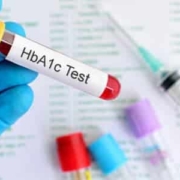5 Ways to Prevent Weight Gain After Menopause
The process of menopause is a natural part of aging for women. Menopause marks the end of menstrual periods and is characterized by a significant decrease in female hormone production.
While menopause itself does not cause weight gain, the hormonal fluctuations and changes that occur during this time can lead to significant weight gain. Research has indicated that women tend to gain weight after menopause, with an average of 10-20 pounds of weight gain occurring without careful intervention.
Understandably, weight gain during menopause can be frustrating and can have a significant impact on a woman’s overall health and well-being. In this article, Dr. Ruthie Harper in Austin, TX explains why it is important for women to understand why they may be experiencing weight gain during menopause and to identify strategies to prevent it.
Why Do Women Gain Weight After Menopause?
There are several reasons why women tend to gain weight after menopause. One of the main culprits is a decrease in estrogen levels. Estrogen plays a vital role in regulating body weight by stimulating the production of insulin, which helps to regulate blood sugar levels.
Additionally, estrogen helps to regulate metabolism and fat storage. When estrogen levels decrease during menopause, the body begins to experience a shift in fat distribution. Specifically, fat begins to accumulate in the belly area, which can increase the risk of chronic diseases such as heart disease, diabetes, and some forms of cancer.
Another contributing factor to weight gain during menopause is a decrease in muscle mass which can lead to a slower metabolism. This means that the body burns fewer calories at rest, making it easier to gain weight.
Lastly, lifestyle factors such as stress, lack of physical activity, and poor dietary choices can also contribute to weight gain during menopause.
5 Ways to Prevent Weight Gain After Menopause
While the process of menopause and aging itself cannot be prevented, there are strategies that women can use to prevent weight gain. These strategies include:
- BHRT to Prevent Menopause Weight Gain
BHRT has emerged as an important solution to tackle the issue of weight gain after menopause. Bioidentical hormones are identical in chemical structure and function to the hormones produced naturally in the body. These hormones are derived from natural sources and are designed to mimic the action of hormones such as estrogen, progesterone, and testosterone. They are prescribed by integrative physicians in customized doses based on a woman’s individual requirements. Bioidentical hormone therapy has been found to effectively regulate metabolism, thereby preventing weight gain in menopausal women. Finding a qualified physician is essential here since the key to success is to use the right form of hormone (bioidentical), in the right amount and the right balance.
- Balanced Diet to Prevent Menopause Weight Gain
Eating a balanced diet is essential for maintaining a healthy weight during menopause. It is important to focus on consuming lower carbohydrate nutrient-dense foods such as quality lean proteins, fruits, and vegetables and healthy fats. The post-menopausal body tends to be more insulin resistant and sensitive to carbohydrates meaning that the amount of carbohydrate rich foods consumed after menopause needs to decrease.
- Staying Active to Prevent Menopause Weight Gain
Physical activity is crucial for preventing weight gain during menopause. Engaging in regular exercise can increase muscle mass, which can boost metabolism and help the body burn more calories at rest. Additionally, physical activity can help to reduce stress levels, which can have a positive impact on weight management. Shoot for at least 150 minutes of moderate-intensity exercise per week. This can include activities such as brisk walking, cycling, swimming, or strength training. If you’ve never exercised before- now is the time to start.
- Managing Stress to Prevent Menopause Weight Gain
Chronic stress can have a negative impact on weight management, especially during menopause. When the body is under stress, it produces higher levels of cortisol, a hormone that promotes the accumulation of belly fat. To manage stress, consider engaging in relaxation techniques such as yoga, deep breathing, or meditation.
- Enough Sleep to Prevent Menopause Weight Gain
Getting enough quality sleep is essential for maintaining a healthy weight during menopause. Research has shown that sleep deprivation can disrupt hormones that regulate appetite, leading to increased calorie intake and weight gain. To promote better sleep, aim to establish a consistent sleep schedule and avoid caffeinated beverages and alcohol before bedtime.
Prevent Menopause Weight Gain | Austin Menopause Doctor
Weight gain during menopause is a common experience for many women. Understanding the causes of this weight gain and implementing strategies to prevent it can have a significant impact on overall health and well-being.
Replacing hormones with bioidentical hormones, eating a balanced diet, staying active, managing stress, and getting enough sleep are all vital strategies that can help to prevent weight gain and promote a healthy lifestyle for menopausal women.
If you would like to discuss your menopause journey with a doctor who can help you naturally manage menopause symptoms and prevent weight gain schedule an appointment with Dr. Ruthie Harper, MD in Austin, TX today.



